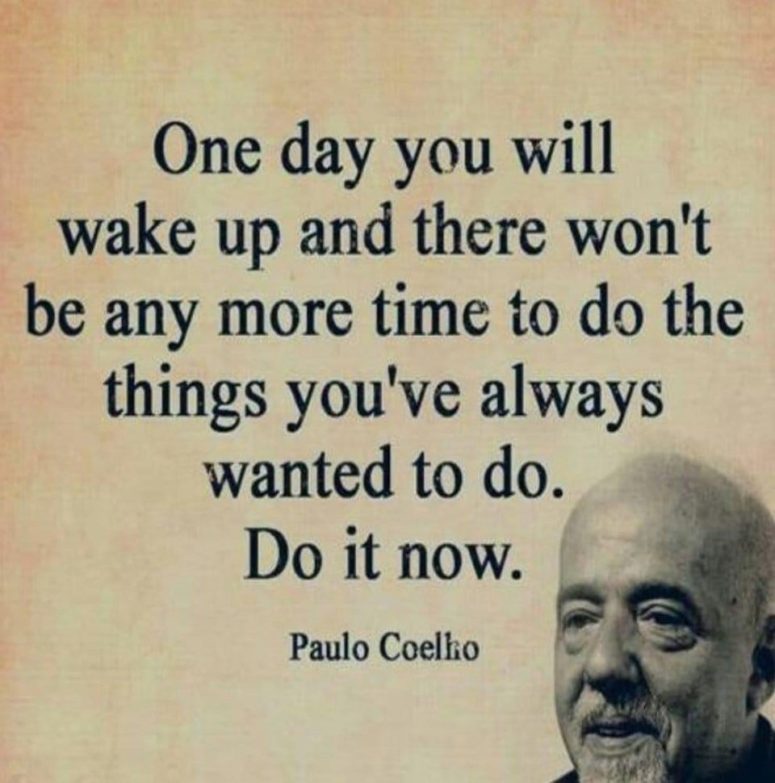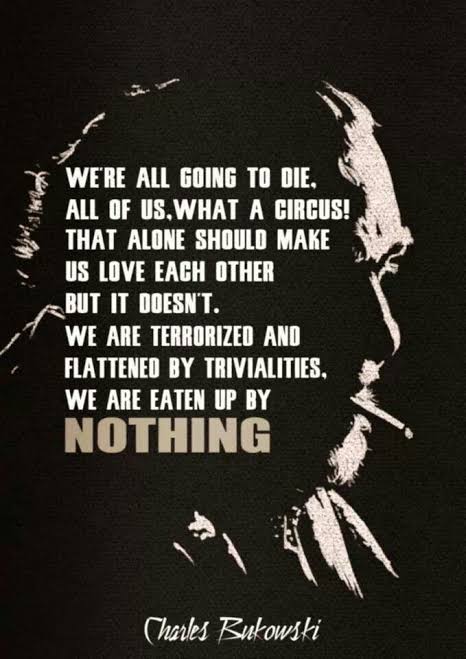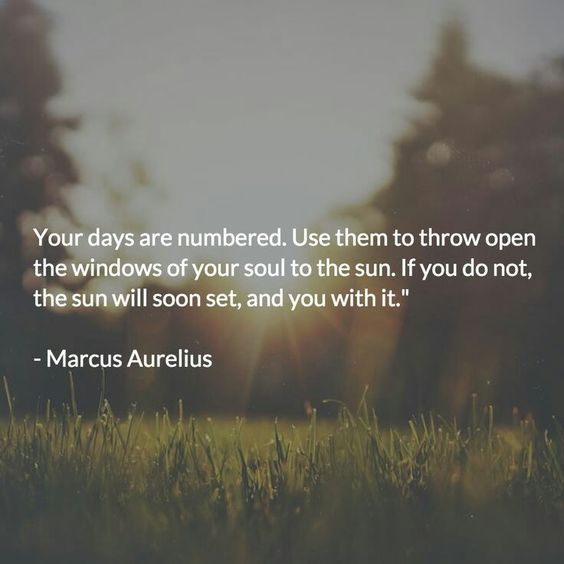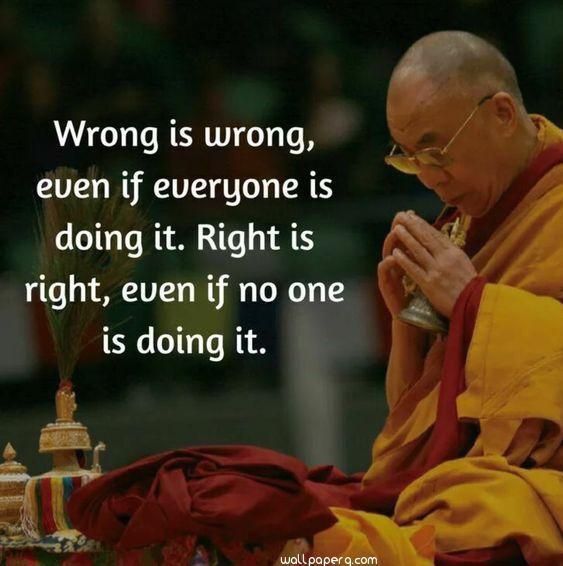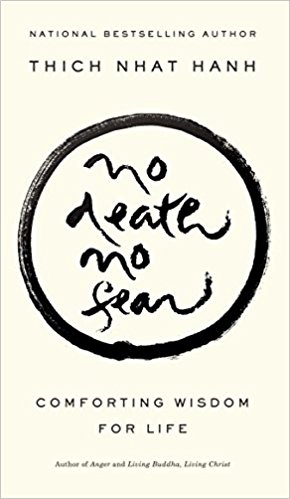“In India it is common wisdom that the world is like a waiting room in a railway station; it is not your house. You are not going to remain in the waiting room forever. Nothing in the waiting room belongs to you—the furniture, the paintings on the wall… You use them—you see the painting, you sit on the chair, you rest on the bed—but nothing belongs to you. You are just here for a few minutes, or for a few hours at the most, then you will be gone.”
Osho, Courage (Page 34)
“Your body is just a loan from this planet. What you call ‘death’ is just Mother Earth reclaiming the loan that she offered to you. All life on this planet is just a recycle of the earth. You may think right now that you are going to your office, home, or football match, but as far as your body is concerned, it is going, moment by moment, straight toward the grave. Right now, you may have forgotten, but slowly, as time passes, it will become more apparent that this is the nature of the body.”
Sadhguru, Inner Engineering (Page 150)
“One of the most powerful spiritual practices is to meditate deeply on the mortality of physical forms, including your own. This is called: Die before you die. Go into it deeply. Your physical form is dissolving, is no more. Then a moment comes when all mind-forms or thoughts also die. Yet you are still there—the divine presence that you are. Radiant, fully awake. Nothing that was real ever died, only names, forms, and illusions.”
Eckhart Tolle, The Power of Now (Page 196)
“The fact that life is temporary—the happiness, the joy, the hope, the fear, the pain, the sorrow, the victories, the defeats—is the most comforting and terrifying fact of existence.” ~ Humble the Poet, Things No One Else Can Teach Us (Page 13)
“You are living as if destined to live for ever; your own frailty never occurs to you; you don’t notice how much time has already passed, but squander it as though you had a full and overflowing supply—though all the while that very day… may be your last.” ~ Seneca, via Essential Zen Habits (Page 22)
“We often conduct our life as though it’s going to last forever. With this attitude, we want everything. The fact of death puts a limit on what we can have, what we can do. We don’t need to think about death all the time, but to ponder it, to contemplate it, gives us perspective and inspiration about living our life. It also makes us less spoiled. It makes us look at the balance of our life and determine what needs to come first. What is important to me? How shall I use my life? We’re able to enter situations more openly once we’ve related with death. It makes our love more powerful.” ~ Sakyong Mipham, Turning the Mind Into An Ally (Page 156)
“Understanding the meaning of impermanence makes us less desperate people. It gives us dignity. We no longer grasp at pleasure, trying to squeeze out every last drop. We no longer consider pain something we should fear, deny, and avoid. We know that it will change.” ~ Sakyong Mipham, Turning the Mind Into An Ally (Page 150)
“Contemplating impermanence can be a liberating experience, one that brings both sobriety and joy. In essence, we become less attached. We realize we can’t really have anything. We have money and then it’s gone; we have sadness and then it’s gone. No matter how we want to cling to our loved ones, by nature every relationship is a meeting and parting. This doesn’t mean we have less love. It means we have less fixation, less pain. It means we have more freedom and appreciation, because we can relax into the ebb and flow of life.” ~ Sakyong Mipham, Turning the Mind Into An Ally (Page 150)
“Impermanence is always pounding at the door. Of course, acknowledging impermanence doesn’t mean we get permanence. It means we’re more in tune with reality; we can relax. As we relinquish our attachment to permanence, pain begins to diminish because we’re no longer fooled. Accepting impermanence means that we spend less energy resisting reality. Our suffering has a more direct quality. We’re no longer trying to avoid it. We see that impermanence is a river that runs through life, not a rock that stands in the way. We see that because we resist impermanence, pain and suffering are constants. We realize that pain comes from our desire for permanence.” ~ Sakyong Mipham, Turning the Mind Into An Ally (Page 147)
“This may be the one-sentence essence of what I learned in my year among the oldest old: to shut down the noise and fears and desires that buffet our days and think about how amazing, really amazing, life is. Could I do this? Before the year began, my answer would have been no, that the noise and fears and desires were life itself. But as the year went along I found myself shifting my focus to the quiet beneath the noise—how unlikely the moment was, how each sliver contained a gift that might never return. Maybe this was what it meant to think like an old person. I couldn’t live wholly in the moment, because I had a future to think about, but if I had learned anything, it was to live as if this future were finite, and the present all the more wondrous as a result.” ~ John Leland, Happiness is a Choice You Make (Page 210)
“To accept death was to accept life, and to accept life was to live in joy, however dire the circumstances around you.” ~ John Leland, Happiness is a Choice You Make (Page 163)
“What I came to realize with John was that accepting death—wishing for it, even—didn’t devalue the days he had left, but made each count more because they were so few. It freed him to live in the things he liked, not agonizing over what he would do if he could. This was why talking about wanting to die could cheer him up. Death gave everything its value. The number of times he would see this or that friend was limited, so each time was precious. The moments were supersaturated, not fleeting as they are in youth.” ~ John Leland, Happiness is a Choice You Make (Page 151)
“I have no feeling of an afterlife at all. As a matter of fact, I hope not. I can’t imagine anything going on forever. I miss Walter and I wish I could meet him in another life, but I know I won’t. Actually, it’s rather soothing. It is all going to end; I don’t see anything wrong with that.” ~ John Sorensen, Happiness is a Choice You Make (Page 83)
“I often feel that death is not the enemy of life, but its friend, for it is the knowledge that our years are limited which makes them so precious.” ~ Rabbi Joshua L. Leibman, via Happiness is a Choice You Make (Page 46)
No Death, No Fear [Book]
Book Overview: Nominated by Martin Luther King, Jr. for a Nobel Peace Prize, Thich Nhat Hanh is one of today’s leading sources of wisdom, peace, compassion and comfort. With hard-won wisdom and refreshing insight, Thich Nhat Hanh confronts a subject that has been contemplated by Buddhist monks and nuns for twenty-five-hundred years— and a question that has been pondered by almost anyone who has ever lived: What is death? In No Death, No Fear, the acclaimed teacher and poet examines our concepts of death, fear, and the very nature of existence. Through Zen parables, guided meditations, and personal stories, he explodes traditional myths of how we live and die. Thich Nhat Hanh shows us a way to live a life unfettered by fear.
Buy from Amazon! Listen on Audible!
Great on Kindle. Great Experience. Great Value. The Kindle edition of this book comes highly recommended on Amazon.
Post(s) Inspired by this Book:
